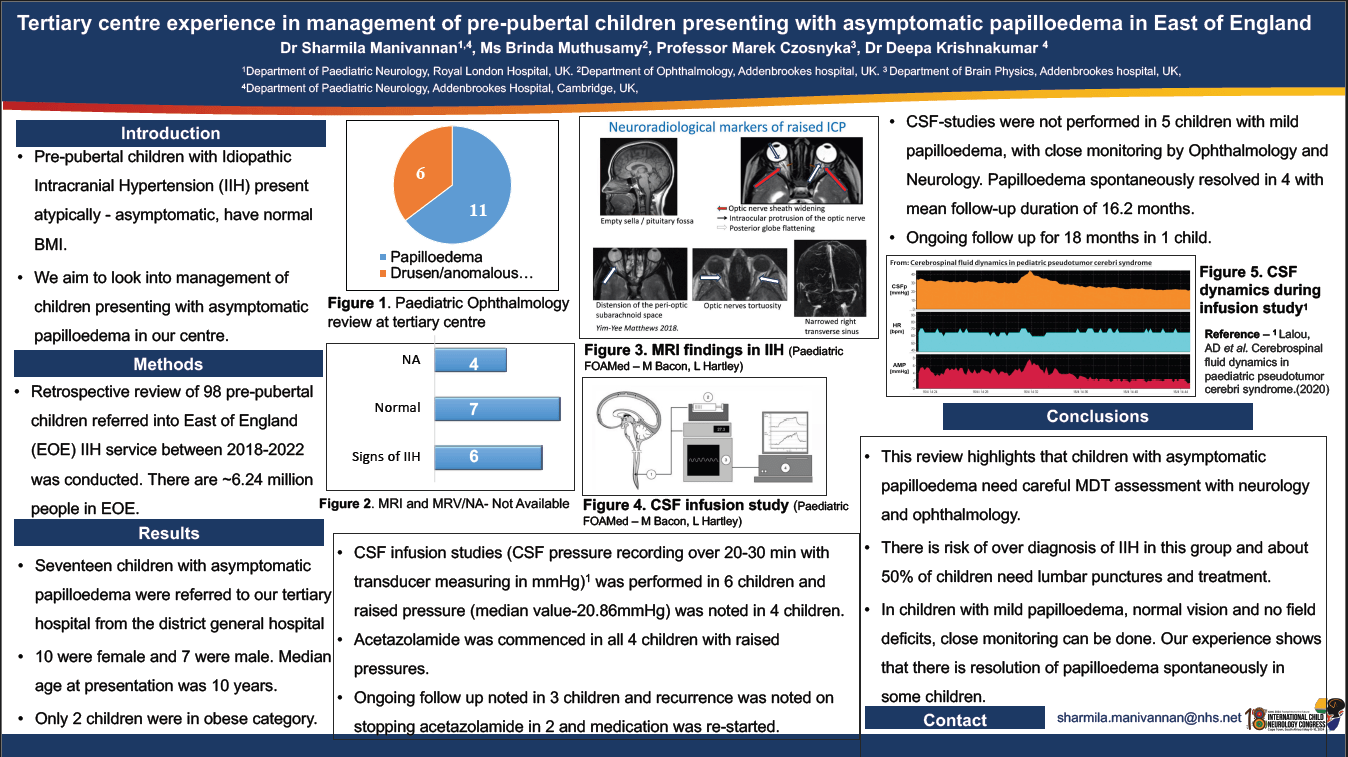Tertiary Centre Experience In Management Of Pre-pubertal Children Presenting With Asymptomatic Papilloedema
Introduction: Pre-pubertal children with Idiopathic intracranial hypertension(IIH) presents atypically compared to post-pubertal children as they can be asymptomatic, have normal BMI or normal pressures. Our study aimed to look into management of children presenting with asymptomatic-papilloedema in our centre.
Methods: Retrospective case-note review of 98 pre-pubertal children referred into East of England(EOE) IIH service over past 5 years was conducted. Pre-pubertal is defined as <11years based on average pubertal-age.
Results: Seventeen children with asymptomatic-papilloedema were referred from the region. 10 were female. Median age at presentation was 10years. Normal BMI in 10 and 2 were obese. Papilloedema was confirmed in 11 out of 17 children, rest had drusen/anomalous-discs. MRI+MRV showed signs of IIH in 6 children, normal in 7 and scan not done in 4.
CSF infusion-studies was performed in 6 children and raised pressure(median-20.86mmHg) was noted in 4 and acetazolamide was commenced. On-going follow-up noted in 3children. Recurrence was noted on stopping acetazolamide in 2 and medication was re-started. CSF-studies were not performed in 5 children with mild-papilloedema, with close monitoring by Ophthalmology and Neurology. Papilloedema spontaneously resolved in 4 with mean follow-up duration of 16.2months and ongoing follow-up for 18months in 1.
Conclusion: This review highlights that children with asymptomatic-papilloedema need careful MDT-assessment with neurology and ophthalmology. There is risk of over-diagnosis of IIH in this group and only small proportion of children need lumbar punctures and treatment. Our experience shows that some children only require careful-monitoring and have complete resolution of papilloedema with no further invasive tests.
Sharmila Manivannan
Royal London Hospital
United Kingdom
Brinda Muthusamy
Cambridge University Hospital
United Kingdom
Marek Czosnyka
Cambridge University Hospital
United Kingdom
Deepa Krishnakumar
Cambridge University Hospitals
United Kingdom

Sharmila Manivannan
Royal London Hospital
United Kingdom